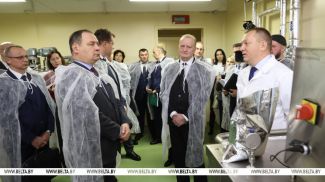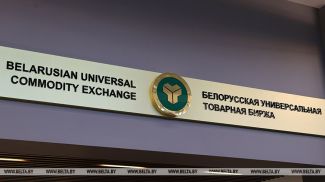MINSK, 29 December (BelTA) – A program to guide actions of the Belarusian government till 2025 has been adopted by the Council of Ministers' resolution No.758 of 24 December 2020, BelTA learned from the national legal information website pravo.by.
The document reflects the main directions of the government's actions to achieve goals, accomplish tasks, and fulfill provisions of the national social and economic development program for 2021-2025. The key purpose of these efforts is to enable conditions conducive to sustainable economic development, growing prosperity, and rising living standards of the population.
The action program contains a chapter dedicated to enabling conditions for improving living standards. One of the sections focuses on stable growth of earnings of the population. The section is supposed to ensure steady growth of population earnings as the foundation for the population's successful and quality life. The section provides for raising public sector salaries as a whole and for raising salaries for individual categories of workers faster. The level of salaries of low-paid categories of workers is expected to rise as well as the level of pensions. A gradual transition to assigning pensions in a proactive mode and the expansion of international cooperation in the sphere of pensions are stipulated by the document.
The action program also contains chapters focusing on maintaining macroeconomic balance and financial stability, on promoting initiatives, entrepreneurship, and competition, on reforming the state administration and raising the productivity of state assets, on improving the effectiveness of investments in economy, on increasing the innovativeness of the economy, and on other matters.
Central government agencies and other state organizations accountable to the central government, the oblast administrations, and the Minsk City Executive Committee are hereby instructed to report the program's fulfillment progress to the Economy Ministry by 1 March every year and submit proposals on adjusting the program if necessary.
By 1 April every year the Economy Ministry will have to provide generalized information about the program's fulfillment as well as proposals on adjusting the program to the Council of Ministers. Deputy prime ministers are in charge of overseeing specific aspects of the program's fulfillment depending on their division of responsibilities.












